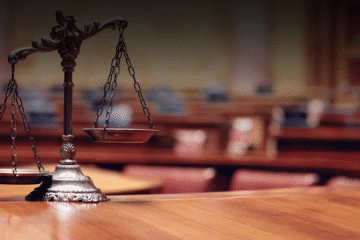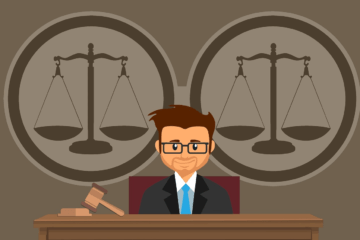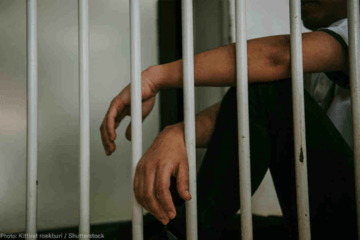
This Article is written By Shweta Srivastava of Trinity Institute of Professional Studies, an Intern under Legal Vidhiya
ABSTRACT
A juvenile[1] is an individual who is under the 18 years of age and is not considered an adult as of yet. A juvenile is an individual who is not yet considered to be competent of doing anything that an adult may be considered competent of doing, neither mentally nor physically, hence are treated differently and with caution, by the various corrective institutions as well as by the legislative authorities. Hence, a because of this reason, a separate act has been constructed by the legislative authorities to meet with the protective needs for the juveniles, recognized as the “Juvenile Justice Act, 2015”.
NGOs are proactive organization that works for social causes and help to solve the problems from the very root of it, being actively connected with the society and the people of it.
Keywords-
Juvenile, Juvenile Delinquency, Rehabilitation, Non-Governmental Organization, Reintegration, Children in Conflict With Law, ECHO, CRY, SPYM, Children in Need of Care and Protection, Delinquent, Restorative Justice, Vocational Training, Skill Development, Counselling, Behavioral Training
INTRODUCTION
With the changing times, and with the change of temperament of the individuals, the rise in crimes have shown a new trend whereby, the juveniles are not only the victims of the offence but also, are seen as one of the convicts in various offences against the other individuals, hence, it increases the need of a proactive involvement of the NGOs and the civil societies to basically, get to the root of the problem and deal with the focus groups, in the present scenario, the juveniles.
When we study about the concept of Juvenile Justice Act, one term that must cross our mind is the “Juvenile Delinquency”, which has been defined by different sociologist Cyril Burt as follows, he defined juvenile delinquency as “ when a child’s antisocial tendencies appear so grave that he becomes or ought to become the subject of the official action.” Hence, it can be said that the juvenile delinquency is a kind of abnormality, when a juvenile deviates from the course of social behaviour that is expected of the individual being a part of the society. In consonance with this comes group of children that are dealt with under the Juvenile Justice act, 2015, known as the “Children in conflict of law”[2], defined as- “ a child who is alleged or found to have committed an offence and who has not completed the eighteen years of age on the date of commission of such an offence. They are seen as a menace to the society being involved in the crimes at such a young age. Now, while dealing with the individuals of such a tender age, there are few principles as stated in the Juvenile Justice (Care and Protection of Children Act, 2015) that needs to be kept in mind while dealing with these juveniles as follows[3]:-
- Principle of Presumption of innocence– A child below or up-to 18 years of age is considered to be innocent in the eyes of law.
- Principle of Dignity and worth– Relying on this principle it is aimed to maintain that every individual is of worth and dignity and basing on their tender age it has to be maintained by all the corrective institutions.
- Principle of participation– It is important for all the children who are affected by any acts and its consequences, still, have a right to be heard and be involved in the decision making process taken up by any corrective institutions.
- Principle of Safety– In the corrective institutions, every efforts should be taken to ensure that the children are safe and are not subjected to any harm, abuse or maltreatment at the hands of the system.
- Principle of Equality and Non Discrimination– It has to be maintained that there is no discrimination with the juveniles in the corrective and protective facilities, based on their sex, caste, ethnicity, place of birth and disability, every child has a right to equality of access and opportunity.
- Principle of natural Justice- Basic fairness has to be maintained in the procedures, like equality of access, right to be heard, rule against bias.
Now, catering to these principles, the Juvenile Justice Act, 2015 makes provision for the Rehabilitation and social reintegration[4] of the juveniles, by which it aims to continue the process of rehabilitation and social integration based on an individual care plan of the child.
NEED FOR REHABILITATION
As we established that a juvenile delinquent is a child who does not showcase a behaviour as is expected from a child of that age in the society and hence, they showcase such an activity that is not fruitful, not only for their development but also for the society as a whole, as these youngsters are the one who are looked up to for a bright future, so it becomes necessary to find the root cause of their issues and work to mitigate those causes and help them to rehabilitate to a better conditioning and to deter them from continuing the delinquent acts, basically, following a “forward-looking approach” and following the measures that can create an environment that fosters growth and a fruitful environment for the juveniles rather than an environment that fosters delinquent behaviour among the budding individuals.
- Skill Development– Various programs, such as those focused on educational and vocational training, assist juveniles in comprehending the intricacies of societal functioning. These initiatives enable them to engage in vocations that not only facilitate their employment prospects but also align with the anticipated standards of conduct within the community, thereby reducing the likelihood of recidivism to previously condemned behaviors.
- Preventing relapsing– one of the principal objectives of rehabilitating individuals is to ensure that they do not succumb to the temptations of engaging in undesirable behaviors that could lead them into legal troubles. This is achieved by involving them in various constructive programs and closely monitoring their daily activities to gain insights into their behavioral patterns. Such understanding enables the implementation of tailored programs that resonate with their unique needs, thereby optimizing the efficacy of the rehabilitation initiatives.
- Restorative Justice– By restorative justice, we denote not merely the retribution of the offender but also the crucial endeavor of reinstating the moral fabric of society to its erstwhile state.. This approach seeks to ensure that the repercussions of crime do not become deeply ingrained in the psyche of individuals, fostering a climate of fear within the community. Through rehabilitative measures, the objective is to deter individuals at a formative age, when their minds are still malleable, guiding them toward paths that are advantageous not only for their personal development but also for the collective well-being of society as a whole.
- Protection of Society– Crimes inflict a profound detriment to the moral fabric of society and evoke distress among individuals who may not be directly affected; nonetheless, they exert a significant influence on the collective psyche. In light of this, rehabilitative programs serve to enlighten first-time offenders regarding the complexities of their actions, thereby deterring them from repeating such transgressions.
ROLE OF NGOS
NGOs, which fundamentally refer to non-governmental organizations, play a crucial role in addressing the underlying causes of societal issues by engaging with communities at large and working in tandem with the sentiments of individuals who are most adversely affected by these challenges. Consequently, it is evident that they tackle a myriad of problems that not only impact the masses but also the smaller groups of marginalized individuals. They assume a pivotal role in juvenile rehabilitation, concentrating on the protection and reintegration of these vulnerable populations.
As per the Juvenile Justice Act, 2015[5], the board or the committees are given the power to recognize a voluntary Non-governmental organization to work towards taking up the responsibility of a juvenile after a proper inquiry and to take care of the child in a manner as may be prescribed.
PROGRAMME THAT ARE WIDELY UNDERTAKEN BY THE NGOS
- Vocational Training- NGOs aspire to foster the development of individuals by offering educational and vocational training programs that empower them to secure employment and integrate into the richly diverse fabric of society. This approach ensures that they are not merely stigmatized for their past transgressions but are instead afforded the opportunity to contribute positively to their own lives and the community at large.
- Counselling Sessions- Counselling sessions are aimed at establishing interpersonal communication between the juveniles in conflict with law and those who particularly understands the law and are aimed at affording them an opportunity to better understand the consequences of their actions and to deter them, now, these sessions not only aims at deterring them, but are also aimed at understanding the reasons for their actions and to better understand their psyche and put them to such programme and training sessions that are particularly woven for their personality and to get the outcomes intended from them.
- Awareness Programme- When a crime happens, it is not only the offender and his psyche that needs to be studied but also their family background needs to be studied. because as we say in the general parlance, an individual and his actions are the reflection of what goes in their families, hence, family plays an important role in moulding an individual, the NGOs aims to spread awareness among the families so that the crime prevention can be done at the earliest of its stages by family intervention.
- Behavioral Intervention– By employing various methodologies, as previously articulated, the NGOs diligently monitor the activities of the delinquents. Through consistent follow-ups, regular check-ins with the families, and fostering interpersonal communications, a behavioral intervention is implemented.
FEW NGOS WORKING TOWARDS THE REHABILITATION OF THE INDIVIDUALS:-
- ECHO (Empowerment of Children and Human Rights organization)- ECHO is an organization dedicated to safeguarding and rehabilitating children who find themselves in conflict with the law, as well as those hailing from vulnerable backgrounds. Their primary focus is to establish a center that offers shelter, counseling, and skill development, while also fostering educational and vocational training alongside job placement opportunities.
- CRY (Child Rights and You)- CRY is a leading NGO working towards the protection of child rights and focuses on maintaining a sense of equality in education, healthcare and to prevent involvement of children in harmful vocations for meagre wages.
- SPYM( Society for the Promotion of Youth and Masses)– SPYM is dedicated to delivering rehabilitative services to marginalized and homeless individuals through a variety of structured programs.
Alongside these organizations, few organization such as, UNICEF India, Salaam Baalak Trust, and Bal Raksha Bharat, concentrate on holistic development, ensuring that children have access to education, healthcare, and a myriad of other essential support services.
CONCLUSION:-
After the study, as previously mentioned, it can be asserted that NGOs strive to cultivate an environment for juveniles that not only dissuades them from engaging in detrimental behaviors but also ensures their rehabilitation in a manner that aligns with societal expectations, thereby preserving the moral fabric of the community. From the time being the NGOs have been a great source of awareness for the people specially those who are marginalized in the society and are looked after normally in the society.
The NGOs strives to work with the people at the root level and with the help of community engagement they are able to work for the betterment of the society. Juvenile Delinquency is of the major budding problems and rather than a proper legal action, there is a need for the policies and programme that work towards this problem and aim to solve it out at the earlier stage. Because if such delinquent behaviour are not corrected with the help of the policies and stringent actions, and rehabilitative programme, the same can become a menace to the society, because eventually its is the delinquent juveniles who are once ignored may turn out to be a menace in the society, hence, the rehabilitative measures should not be stopped, and not only that but use of various other methods like social media for that matter may prove to be fruitful most of the youngsters are now-a-days very active on social media that can help to mould their minds by the way of sensitization methods and approaching them with caution.
Hence, along with the legislative measures, the work of Non- Governmental organizations also help to create an interpersonal relationship fostering growth of all
REFERENCES
- )
[1] Juvenile Justice (Care and Portection of Children) Act, 2015, S2(35), No. 2, Act of Parliament, 2016 (India)
[2] Juvenile Justice (Care and Protection of Children) Act, 2015, S2(13),No. 2, Act of Parliament, 2016 (India)
[3] Juvenile Justice (Care and Protection of Children) Act, 2015, s3, No. 2, Act of Parliament, 2016 (India)
[4] Juvenile Justice (Care and Protection of Children) Act, 2015, s39, No. 2, Act of Parliament, 2016 (India)
[5] Juvenile Justice (Care and Protection of Children) Act, 2015, s51, No. 2, Act of Parliament, 2016 (India)
Disclaimer: The materials provided herein are intended solely for informational purposes. Accessing or using the site or the materials does not establish an attorney-client relationship. The information presented on this site is not to be construed as legal or professional advice, and it should not be relied upon for such purposes or used as a substitute for advice from a licensed attorney in your state. Additionally, the viewpoint presented by the author is personal




0 Comments